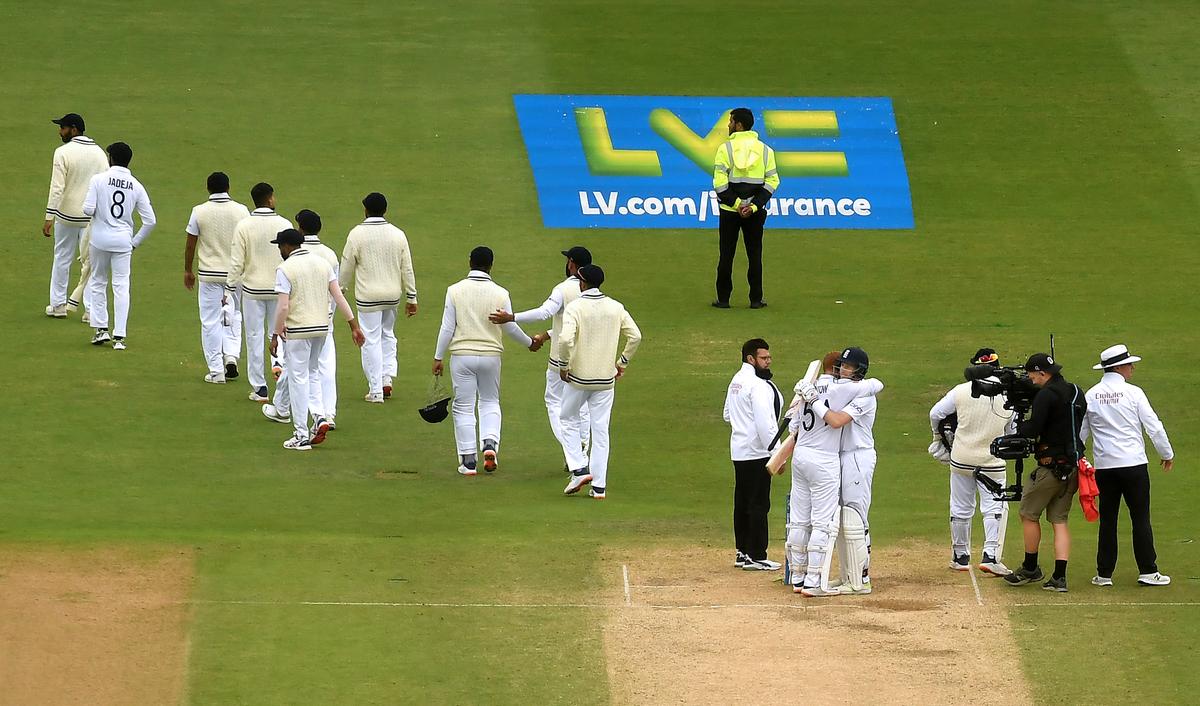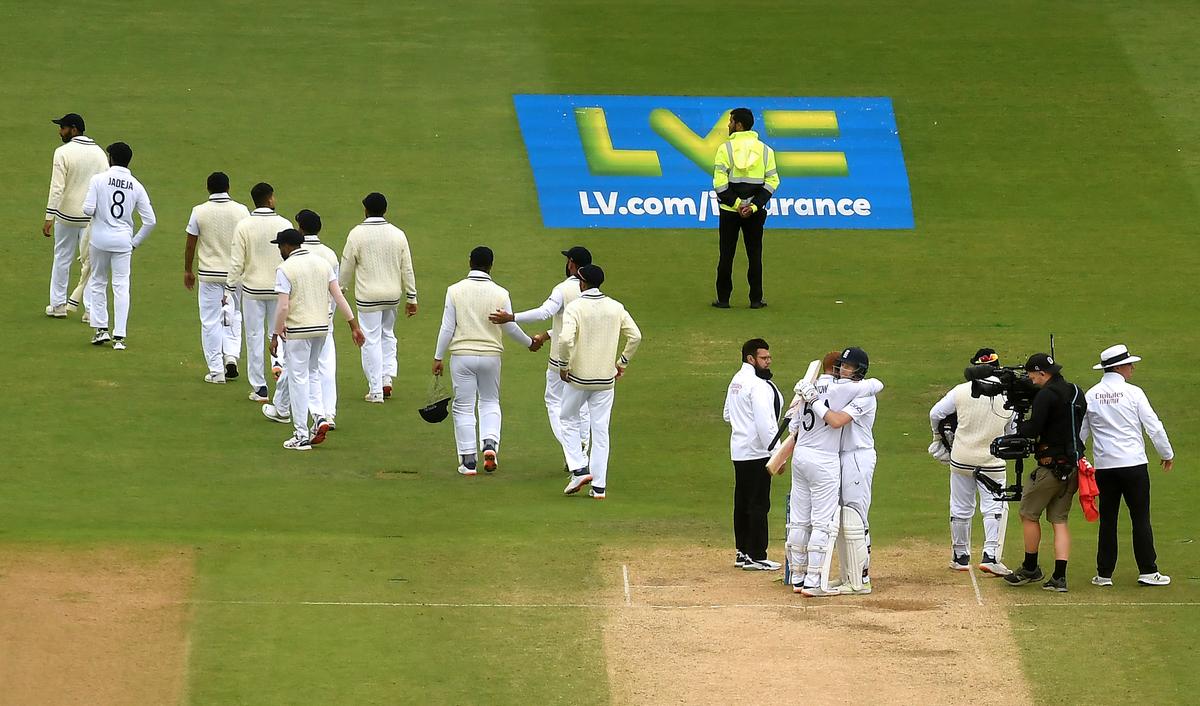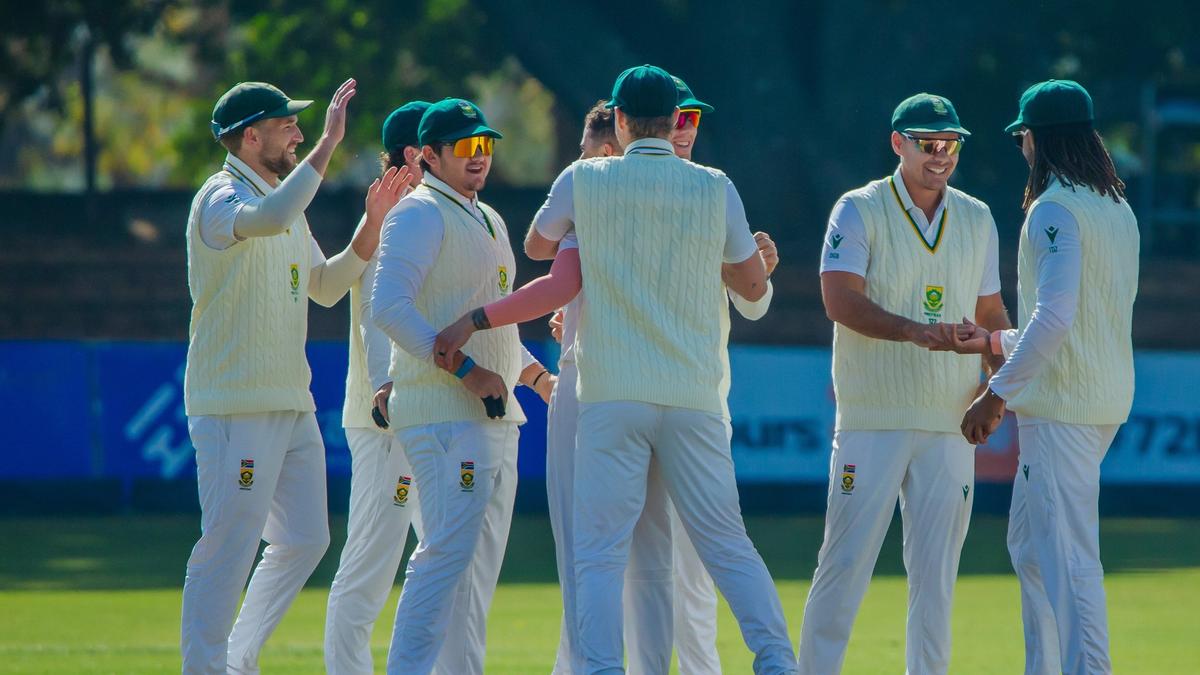The Edgbaston barrier that looms large for Gill & Co.

“It’s disappointing that the final of a 50-over tournament had to be decided by a Twenty20 game.”
One would think this would be the lament of the losing captain, but Mahendra Singh Dhoni is anything but conventional. Not long after his side got out of jail, defeating England by five runs in the final of the Champions Trophy in June 2013, the Indian captain made his displeasure obvious even though he had himself just completed a rare treble of ICC trophies, adding the Champions Trophy to prior triumphs at the T20 World Cup (2007) and the 50-over World Cup (2011).
The scene of India’s first outright Champions Trophy success was Birmingham’s Edgbaston, draped in a sea of blue that would have convinced the uninitiated that it was India who were the home side.
India had previously shared the Champions Trophy title with Sri Lanka, in Colombo in 2002, when the final ended indecisively on both the original day and the reserve day even though close to 110 overs were bowled on the two days combined. There was, therefore, greater satisfaction at having won the title on their own steam, in a game England lorded for the most part until Ishant Sharma broke the final open with the wickets of Eoin Morgan and Ravi Bopara in successive deliveries in the 18th over with the hosts well on course for a comfortable victory.
Until this March, when Rohit Sharma’s men scythed through the draw in Dubai to wrap their hands around the silverware, June 2013 remained India’s standout Champions Trophy memory. Edgbaston, one would therefore presume, ought to bring back happy memories – even though only Ravindra Jadeja from this 18-member touring squad figured in that tournament – but that solitary glittering gem apart, this has been a venue of heartbreak and bitter disappointment, of crushing defeats and underwhelming outputs, in the five-day format.
Starting July 1967, India have lost seven of eight Tests in the United Kingdom’s second largest city, among them three shattering defeats by an innings. The only time they didn’t end up on the wrong side of the result was in 1986, under Kapil Dev. India had already secured an unbeatable 2-0 lead in the three-Test series following victories at Lord’s and Leeds when the teams travelled to Edgbaston with the visitors eyeing a rare clean sweep. It was their first series triumph in England since 1971 when Ajit Wadekar’s band of brothers created history and India were primed to inflict further embarrassment on the hosts after the first innings ended with the scores level (390 apiece).
Chetan Sharma, whose five-for had been instrumental alongside Dilip Vengsarkar’s century in securing the first Test at Lord’s, gave India hope with six for 58 that restricted England to 235 early on the fifth day.
India had more than 80 overs to chase down 236 and were reasonably placed at 101 for one – Sunil
Gavaskar and Mohinder Amarnath were in the middle with a host of batting riches (Vengsarkar,
Mohammad Azharuddin, Ravi Shastri and the mercurial skipper himself) to follow – when a mid-innings collapse of four for four, orchestrated by left-arm spinner Phil Edmonds, threw a spanner in the works.
Azhar and Kiran More, the feisty wicketkeeper, held on for more than two hours while adding 69 to secure an honourable draw. India weren’t complaining, they had won the series 2-0; Mike Gatting’s side was relieved that it didn’t go down in the record books as the first English outfit to be subjected to a 3-0 battering at home by the Indians.

Tough loss
That wasn’t the only time India came close to breaking their Edgbaston duck. In August 2018, in the first Test of a five-match series, India ran England close and had their moments after being set a target of 194, but in those days, chasing – especially overseas – didn’t come easily to Virat Kohli’s side. Through the skipper’s magnificent 149, India had kept England’s first-innings lead down to only 13, after which Ishant Sharma, R.
Ashwin and Umesh Yadav got down to work, leaving Joe Root’s men gasping at 87 for seven.
Not for the first time, they were baulked by the lower-order, shored up this time by the free-scoring Sam Curran. The left-hander smashed nine fours and two sixes on his way to a 65-ball 63, striking up crucial alliances with Adil Rashid (48 for the eighth) and Stuart Broad (41 for the ninth) to give himself and the rest of the bowling group something to work with. England were bowled out for 180 on the third day. Time was never a factor; it was about the Indian top-order holding its nerve against a quality attack helmed by James Anderson and Broad, backed up by Ben Stokes.
Broad struck the early blows and Anderson scuppered the middle-order but like in the first innings, Kohli again held firm, totally untroubled and batting with supreme control while the others around him struggled a fair bit. For more than three hours, he defied England with obdurate defence occasionally interspersed with flowing cover-drives until his first mistake proved his last. Plonking his left foot across his body and trying to work Stokes to leg, Kohli made no contact with the full ball and was trapped plumb in front.
Aleem Dar’s finger shot up in a trice and even while opting for the review, Kohli knew that he was gone. Replays confirmed that the ball would have clattered into the leg-stump.
The skipper had barely taken off his pads when Mohammed Shami followed him back to the hut, three deliveries later, with 53 still required for victory. Fittingly, it was Stokes who formalised the victory, having
Hardik Pandya caught at first slip to send India packing for 162. The talismanic all-rounder finished with four for 40 and India went down by 31 runs, knowing that a long, hard summer loomed. As it transpired, England surged to a 4-1 victory despite Kohli’s batting heroics which netted him 593 runs in 10 innings, a vast improvement from four years previously when he had mustered just 134 runs at an unflattering average of 13.40.
More heartbreak was in store four years later, in the final Test of a series that began in 2021. Originally, the last of the five Tests was slated for Manchester – India held a 2-1 lead at that point – when the match was postponed owing to a Covid outbreak in the Indian camp that sparked the fear of escalation. When India came 12 months later, the game was shifted to Edgbaston. Kohli, who was the captain for the first four Tests, had resigned and Rohit was the new skipper but he missed the match after testing positive for Covid and
Jasprit Bumrah stood in. India led by 132 runs in the first innings and posted 245 in the second, asking England to score 378 to level the series.
By this time, Stokes had been named the England captain, forming an exciting leadership group alongside head coach Brendon McCullum which redefined the team’s approach to Test cricket. Their brand of attacking batsmanship came to be known as Bazball; the defensive pottering of the past had given way to greater freedom in shot-making and a singular absence of the fear of failure. After a 107-run opening stand between Alex Lees and Zak Crawley, England lost three wickets for two runs with Bumrah striking telling blows when Jonny Bairstow joined Root. For the next four hours, the two Yorkshiremen destroyed India’s bowling which lapsed into a steady diet of the short stuff even though there was no indication that that ploy would yield dividends.
A bouquet of boundaries (34 fours, two sixes) marked the unseparated 269-run fourth-wicket partnership. England scored at 4.93 runs an over in the fourth innings to make 378 appear miniscule, even more dominant than at Headingley last week when they again chased down a daunting 371 with relative comfort.
It’s this weight of depressing history that confronts India as they seek to square the series in the second Test beginning on Wednesday. The signs aren’t promising. Despite five centuries and despite their (and the world’s) best bowler taking five wickets in the first innings, India were well beaten in Leeds. It is more than likely that Bumrah won’t play at Edgbaston, which will make India’s task even more difficult. Even if Bumrah
should play, England will feel they have a slight psychological edge because they kept him wicketless during their successful run-chase, all of which suggest that a gargantuan task lies ahead of Shubman Gill and Gautam Gambhir.
Onerous task
If India surrender again in Birmingham, they will practically play themselves into a point of no return. Not often do teams come back from 0-2 down to win a series, especially overseas; India never have, so it is crucial that they put the disappointment of Leeds behind them and regroup quickly and effectively to ensure that they stay in touch with their opponents.
Birmingham does have the reputation of being a tall-scoring venue, which will necessitate India’s top order to reprise its heroics of Headingley, but which will also demand that the lower order weigh in with a few runs of their own. In the two innings combined in the first Test, India lost 13 for 72 whereas England’s last five wickets contributed 189 in the first innings. These are decisive numbers.
India may not boast the same quality in the last four as England, but they can at least invoke the commitment and application so sorely missing last week – and hold all the catches that come their way. But more than all this, they have to find ways and means to pick up 20 English wickets, a tall order with or without Bumrah, as the first Test reiterated.







